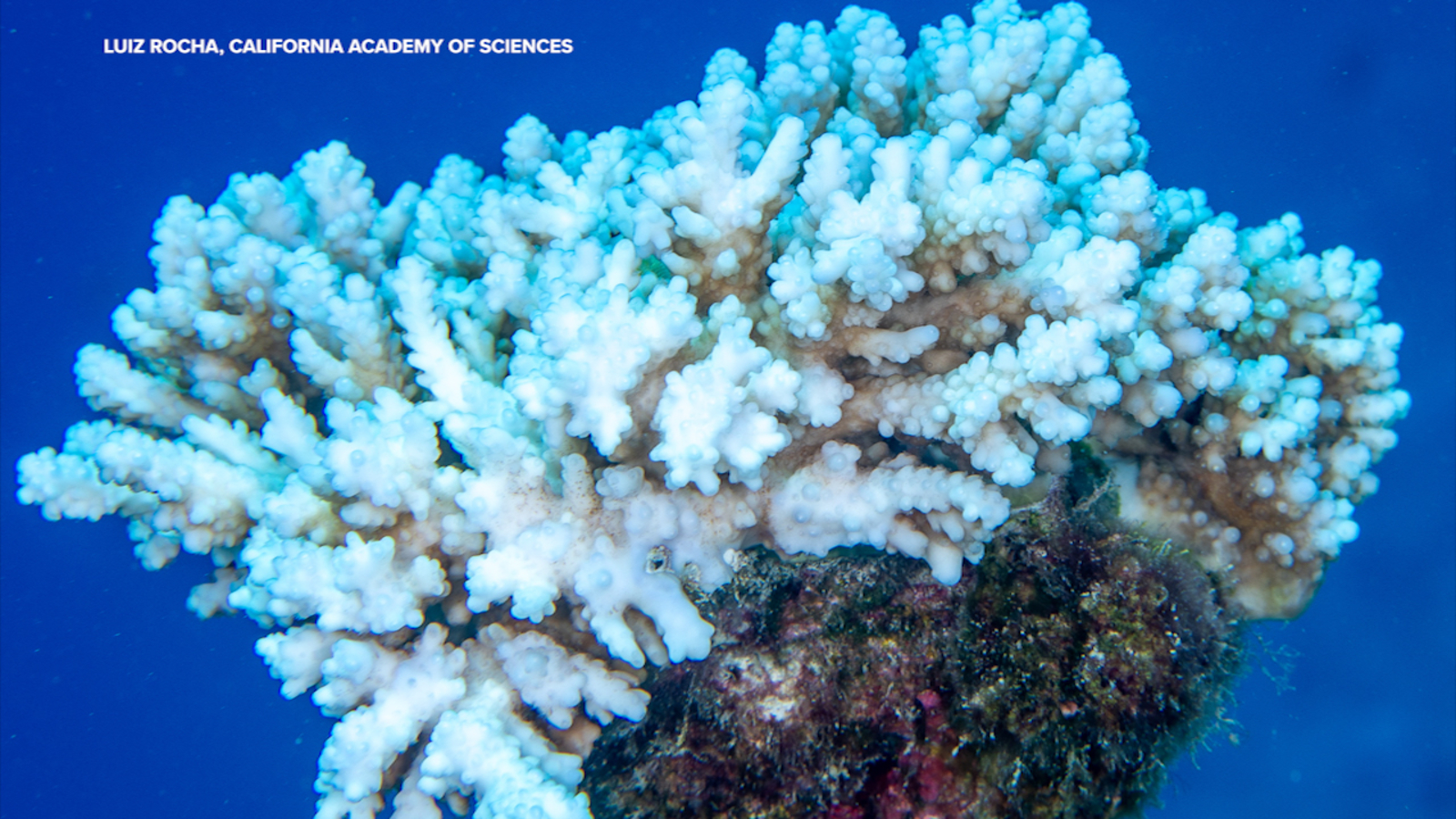
"SAN FRANCISCO (KGO) -- If you could view our planet from space, it might look the same, but new research suggests the Earth is actually spinning at a dangerous tipping point. Temperatures are now predicted to blow past the 1.5 degree Celsius rise compared to pre-industrial levels within the next five years and major ecosystems and climate drivers are on the verge of irreversible collapse. According to a newly released study from the University of Exeter, the first casualty could be the planet's coral reefs."
""You know, what I've seen is what almost everybody that I know that studies reefs over the last, you know, over a period of decades has seen that almost every reef I've ever been to has gotten more and more and more damaged over time," says Stephen Palumbi, Ph.D., a professor of marine sciences at Stanford's Hopkins Marine Station at Monterey Bay."
""So, you've got a heat-stressed, starving animal there that doesn't necessarily live. 90% of them will die, depending on the strength of the heating event. So, the bleaching leads to a lot of coral death," Palumbi says."
Temperatures are predicted to surpass 1.5°C above pre-industrial levels within the next five years. More than two dozen ecological tipping points have been identified, threatening coral reefs, polar ice sheets, ocean circulation, and tropical rainforests. Approximately 80% of coral reefs are being affected by a record mass bleaching event caused by elevated temperatures. Bleaching is the die-off of symbiotic algae that feed corals; some coral species can recover, but many cannot and may experience mortality rates up to 90% depending on heating intensity. Melting ice will drive sea level rise and rainforest die-off will exacerbate greenhouse gas increases.
Read at ABC7 San Francisco
Unable to calculate read time
Collection
[
|
...
]